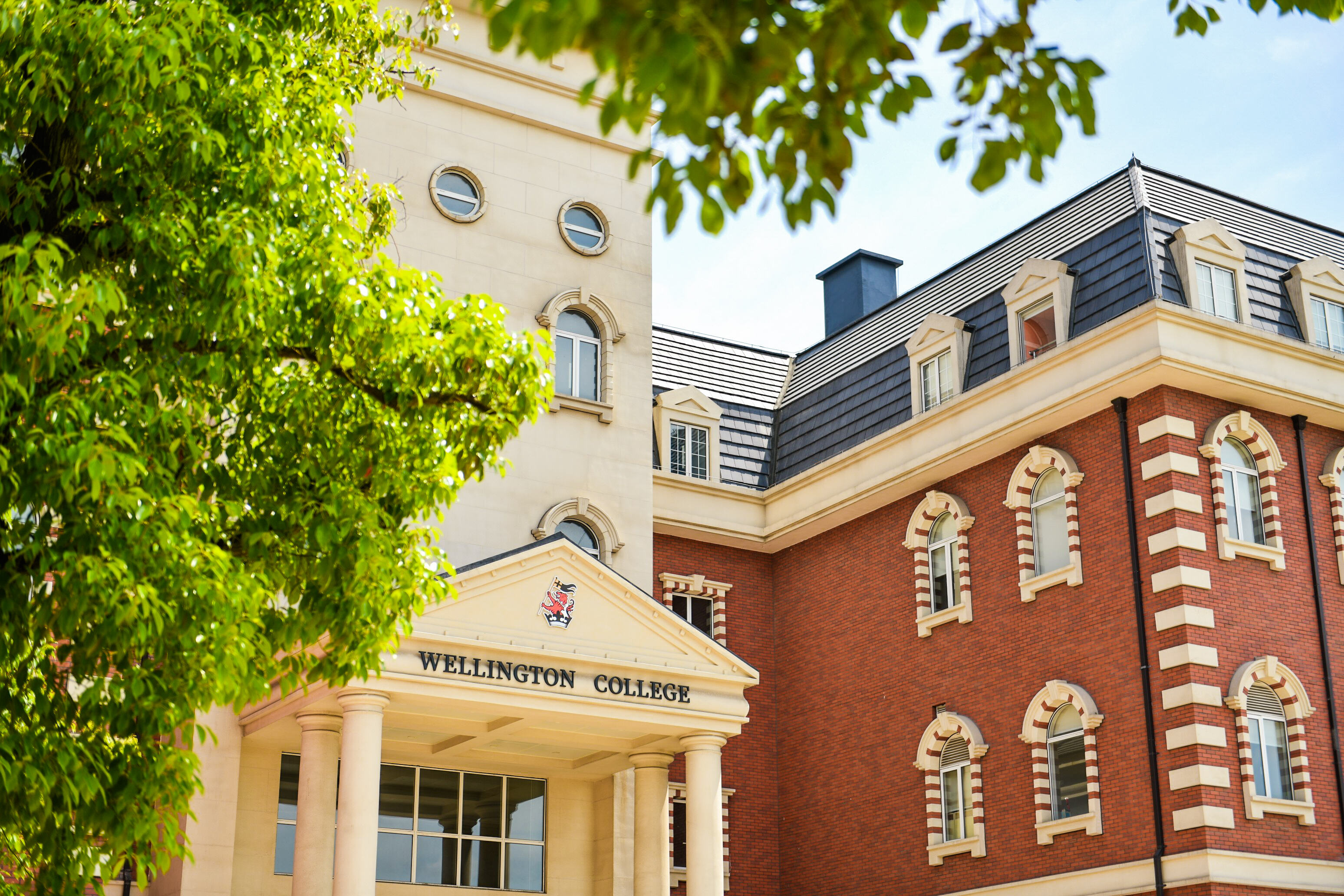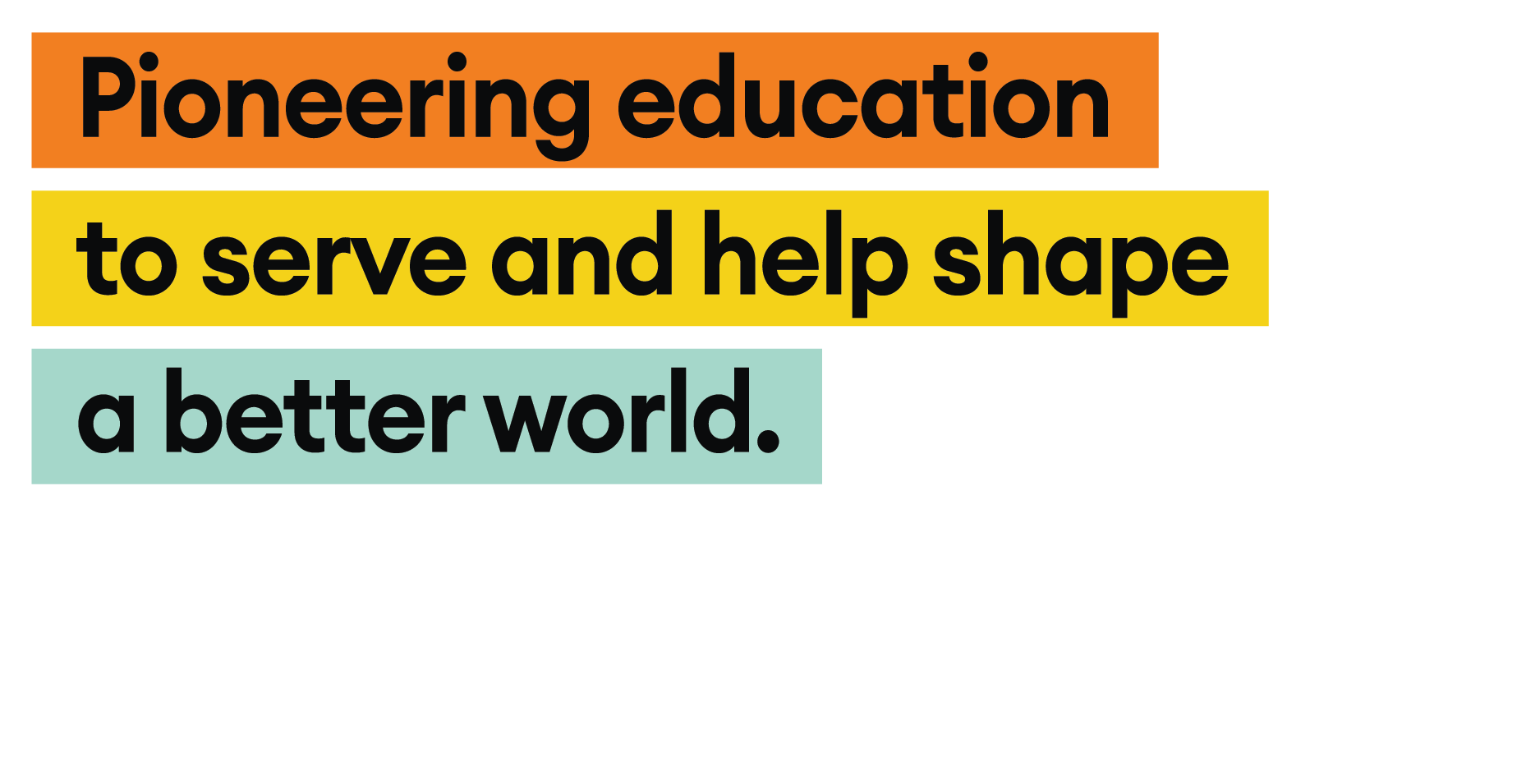TEDx Youth Voices for Justice: Shaping Tomorrow
On Tuesday, Wellington College Education (China) - Hangzhou hosted the highly anticipated TEDx Youth event, A World of Justice. It was an intellectual feast fully planned and organised by Renesmee, one of the Senior School's pupils. Ten guest speakers captivated the Wellington community with their insightful perspectives, delivering a thought-provoking exploration of justice.
The success of this event at Wellington College Education (China) - Hangzhou exemplifies our commitment to providing pupils with a diverse educational experience at Wellington College Education (China) - Hangzhou. Beyond honing pupils' oracy and comprehensive qualities, such an event cultivates their values and passions while allowing them to reflect on the grand topic of ‘justice.’
TED is an influential non-profit international platform for sharing ideas that began in 1984 as a conference where Technology, Entertainment and Design converged. Numerous outstanding figures in the areas of science, art, business etc., are invited to share their insights and explorations on technology, society and humanity.
In the spirit of TED's mission, “ideas worth spreading,” the TEDx programme, where x stands for independently organised TED event, helps communities, organisations and individuals produce TED-style events at a local level. It aims to bring people together in the form of presentation videos and live speakers to provoke deeper discussions and stronger connections within the community. A TEDx Youth event falls within the same TEDx event rules, except this event is oriented towards youth.
*This TEDx Youth event at Wellington College Education (China) - Hangzhou was officially authorised by TED.
The World of Justice
Justice, a timeless and profoundly relevant concept, encompasses morality, law and social equity. At this TEDx Youth event, the ten speakers examined the theme through diverse lenses:
Some traced humanity's pursuit of justice, analysing its evolution across cultures and eras from a historical perspective. Some highlighted inequities in the modern world, urging collective action to support vulnerable groups and uphold fairness. Some shared the challenges faced and wisdom gained in their journey of advocating for justice, which resonated deeply with the audience.
With extensive knowledge and compelling eloquence, the speakers earned resounding applause for their unique insights. Pupils left the room inspired, equipped with a richer, more in-depth understanding of justice, which motivated them to passionately explore societal issues and the meaning of life.
Lingzi & Arwen
Senior School Pupils
Emotions give justice passion
and a sense of urgency,
while justice gives a way to use
those emotions in a good way.
「Emotion and Justice: An Unbreakable Bond」
Lingzi and Arwen challenged conventional notions of justice by revealing emotions as its critical driver. From the innate desire for justice in primitive tribes to the empathy trial in our anterior insula while watching a movie, our understanding of justice has formed an unbreakable bond with our emotions. In this digital age where the balance between reason and emotion grows increasingly unstable, the two pupils advocated for the balance between our feelings and rational thinking in shaping the world into a fairer and more equal place.
Tom
Senior School Pupil
Through the cracks of justice,
we see light.
「When the Train is Driving Towards the Crossroads of Justice」
Starting with the Trolley Problem, Tom revealed the profound tension when justice meets humanity. While utilitarianism advocates ‘sacrificing the few to save the many,’ judicial systems often judge acts of self-defence with high rigour, pushing victims to perform force calculations during life-threatening moments, which is like asking the driver to resolve physics equations in the blink of an eye. Through the Perfect Circle paradox, he demonstrated how absolute justice, while ultimately unattainable, is what guides civilisation. From Socrates' execution to modern judicial loopholes, it is these imperfections that drive humanity to refine its moral compass. Tom concluded by urging society to embrace the law's inherent imperfections and empower every citizen to help perfect the circle of justice.
Helen & Danny
Senior School Pupils
We believe Justice speaks all languages.
Let's ensure it's never silenced.
「Never Unbalance the Balance of Justice」
Helen and Danny delved into the essence and application of justice through compelling case studies. They analysed the judicial breakthrough in the film Article 20, where the prosecutor transcended legal formalism to deliver humane justice through self-defence rulings, with the harsh realities exposed by South Korea's Hope case, which laid bare systemic flaws in offender rehabilitation and victim protection. Spanning from an American high schooler's racing accident to the George Floyd incident, their examination uncovered the tension between public opinion and structural injustice. They believed that justice is not an abstract concept but requires the integration of law articles with human dignity. It necessitates empathetic root-cause analysis in contexts ranging from academic integrity enforcement to neighbourhood support systems and also requires society's obligation to diagnose systematic flaws and institutional reform through civic engagement.
Adin Miller
Humanities teacher
With hard work, resilience
and perseverance,
I could narrow the gap in equality,
even if I could never be 100% equal.
「How much Justice is there in the UK Justice System」
Black and Minority Ethnic (BAME) communities experience systemic bias throughout all stages of the criminal justice process - from youth justice to custodial sentencing. Black people make up about 3% of the general population in England and Wales but constitute about 12% of the prison population, almost ten times more likely to be stopped and searched by the police compared to white people, and more likely to receive longer custodial sentences compared to their white counterparts for similar offenses. To address these disparities, he advocated for acknowledging the systematic problems, promoting self-reflection to eliminate implicit bias, and increasing the representation of ethnic minorities. Mr Adin emphasised that achieving true justice requires moving beyond rigid notions of 'equal treatment'; it is to acknowledge the systemic challenges confronting different groups and implement structural reforms to attain substantive equality.
Flora
Senior School Pupil
Be empowered, be cautious
and be advocates for a
safer digital world.
「Digital Justice in Our Online World」
Flora exposed the hidden violence confronting minors in the digital world. Drawing on poignant cases from a tragic incident that happened to a girl in Ohio to the cyberbullying case targeting Jiang Ge's mother, she identified four critical threats eroding youth mental health: cyberbullying, sexual harassment, algorithmic discrimination, and digital fraud. She called for concerted action: online platforms must prioritise safety measures, governments should enforce stricter regulations, parents need to actively participate in digital education, and teenagers themselves must strengthen self-protection. Only through such collective efforts can we create a space where technology serves, protects and uplifts.
Aditi
Senior School Pupil
Every day, we have the opportunity
to make a difference, to create
a more just world,
one small act at a time.
「Justice in Everyday Life: A Tapestry of Perspectives」
Justice doesn't always exist in grand narratives, but within the fragments of everyday life as well. From the implicit injustice against food stamp users in grocery store lines to intellectual theft in workplaces, Aditi exposes through vivid examples how these 'micro-injustices' silently erode human dignity. She emphasises the multifaceted nature of justice, proposing an action framework, which is to practice self-reflection, listen actively, speak up, educate yourself and support organisations. She calls for us to weave a fairer tapestry of justice in our society through small, conscious acts of kindness. As history has proven, transformative change often begins the moment ordinary people refuse to stay silent.
Nasha
Senior School Pupil
The future of justice isn't just about
laws and courts. It's about how we
use technology to create
a system that truly serves everyone.
「The Role of Technology in Making Justice Accessible for All」
Can AI replace human judges? Nasha expressed concerns about how expensive legal representation and confusing judicial processes prevent people from defending their rights. She discussed how online legal platforms and AI tools could improve the efficiency and accessibility of legal assistance, while acknowledging risks such as leaking personal data, creating a digital divide and AI bias. She reiterated that technology should assist rather than replace human judges, calling for the establishment of regulation frameworks to make legal justice a fundamental right for all.
Andrew Perry
Educational Technology Coach
How can we harness technology
not just to teach — but to uplift,
to equalise and to inspire?
「AI and the Digital Divide」
Andrew's presentation unveiled the dual landscape of AI in education: while it is transforming pedagogical dynamics through targeted teaching, personalised learning and cognitive support, technological disparities are exacerbating opportunity divides. Wellington College Education (China) - Hangzhou's initiatives demonstrate viable pathways for ‘technology for good’ - from our 1:1 device programme to the fabric of our teaching that drives critical thinking, creativity and collaboration. He also mentioned that AI could widen inequality if not managed well and advocated for building a people-centred AI educational paradigm where technology empowers rather than replaces human connections, ultimately realising the vision of inclusive, equitable intelligent education.
组织者手记|From the organiser
As the organiser of TEDx Wellington College HZ Youth, I chose the topic ‘Justice’ as our main theme. With the influence of globalisation, I aim to encourage everyone in this community to engage in discussions and provoke inspirational actions among audiences who are often passionate about advocating for changes. Meanwhile, my future pursuit is to become a law student when I enter university, so at this stage, I want to utilise this opportunity to illustrate that ‘Justice’, a topic which is highly relatavent to laws and legal systems, could have flexible and transformative variations based on people's understanding.
Justice, to me, is the balance between fairness and accountability—ensuring that every individual has both equal opportunity and equitable treatment under the law. While equality means providing the same resources to all, it might not be enough. So here fairness will come in. Fairness recognises that people may need more support to reach the same outcome, and we should always embrace it. Justice also demands systematic accountability, where institutions correct imbalances rather than perpetuate them.
Personally, I see justice as an active pursuit, not just an ideal. No matter whether it is in economic redistribution, criminal reform, or everyday ethics, it requires listening to marginalised voices and adapting systems to serve humanity, not just power. More importantly, the law is constantly evolving based on the status and performance of society to adapt the new challenges. Here, I regard justice as a cornerstone of sustainable development in our living community.
Related Articles
_1753757666549.png?x-oss-process=image/interlace,1/resize,m_lfit,w_1200/quality,q_90/format,webp)

















